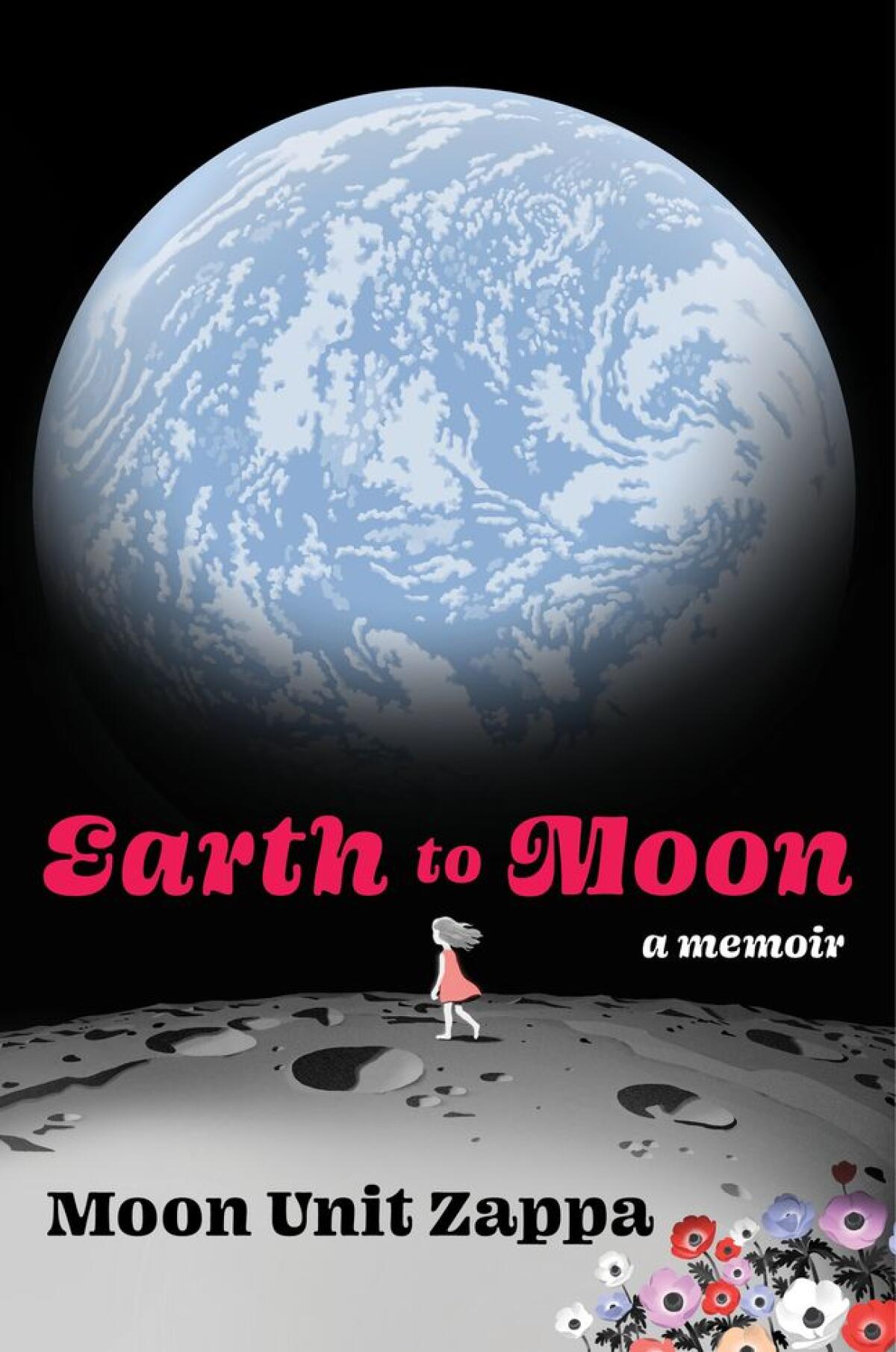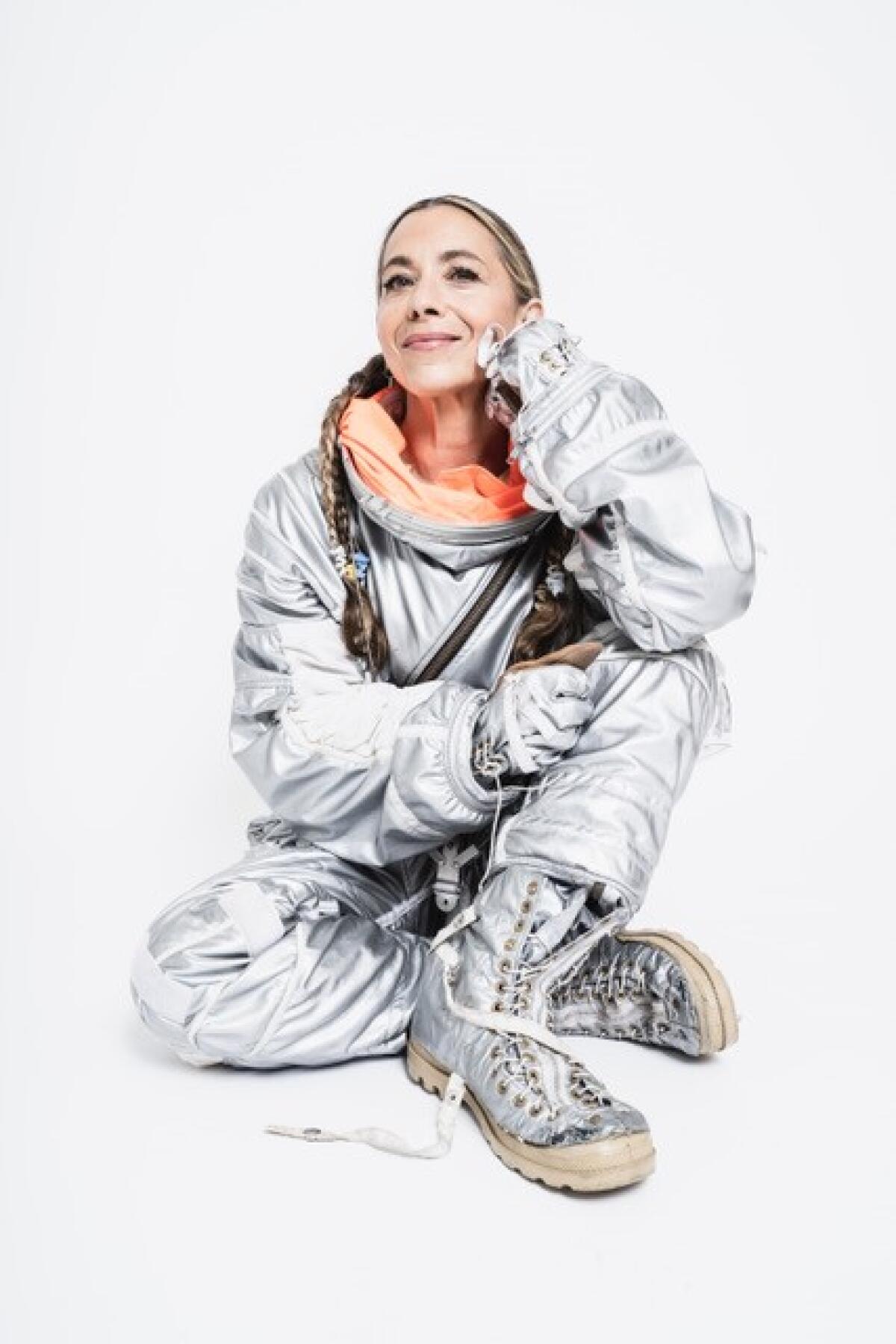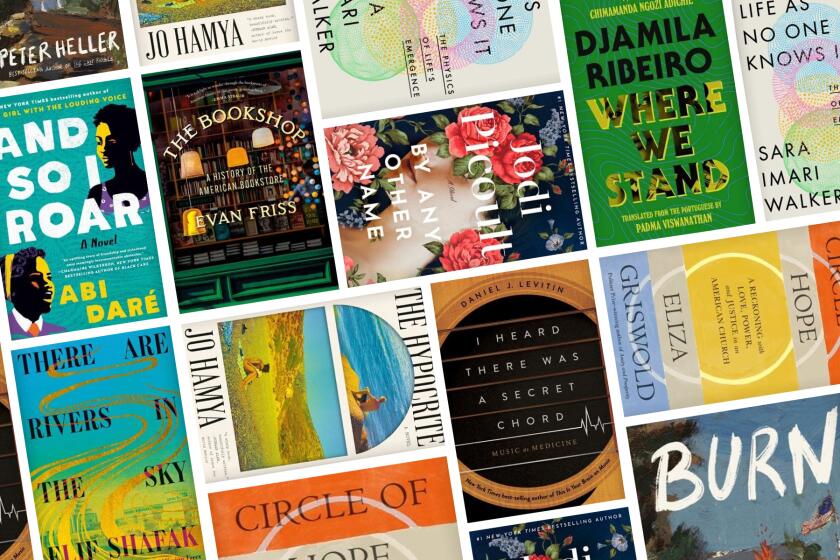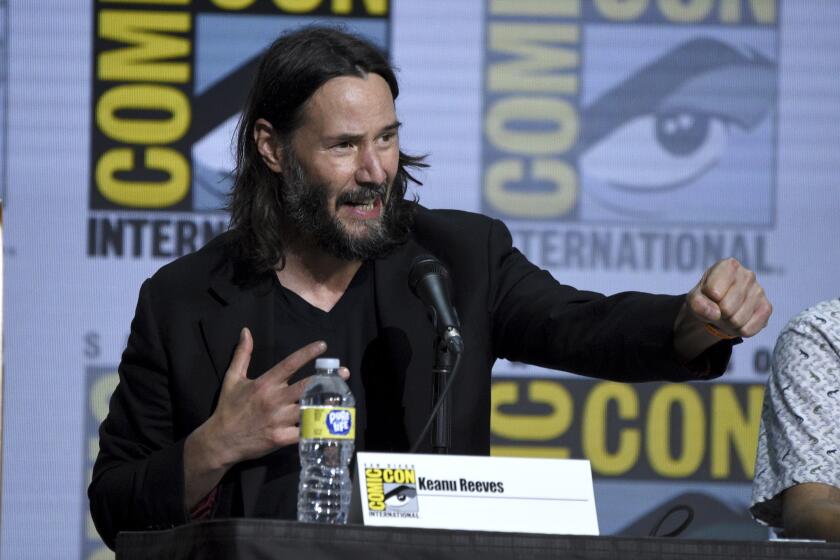In Moon Unit Zappa’s memoir, ‘Earth to Moon,’ famous names collide with family trauma

- Share via
Book Review
Earth to Moon
By Moon Unit Zappa
Dey Street Books: 368 pages, $29.99
If you buy books linked on our site, The Times may earn a commission from Bookshop.org, whose fees support independent bookstores.
One night in 1979, 11-year-old Moon Unit Zappa falls asleep to the sound of her parents arguing. They argue plenty, so this isn’t unusual. Her father, Frank, is a musician and composer with a knotty, complex aural style and a seemingly insatiable appetite for sleeping with his fans. Her mother, Gail, helps him manage his business, and the two are often in conflict about money, other women or both.
But on this particular night, things spiral out of control. And after a few hours of sleep, as Zappa recalls in her new memoir, “Earth to Moon,” she’s awakened by her father standing over her bed saying, “Gail is on a rampage. I need you to hide the gun.”
The girl’s baby sister is asleep in her crib in the same room, and her two younger brothers have also been tucked in for the night. She had no idea that the family had a gun, let alone where it might be hidden. But she goes on a terrified midnight search for a firearm that may or may not have existed; she never ends up finding it. Fortunately, neither does her mother.
Critic Bethanne Patrick recommends 10 promising new titles — fiction and nonfiction — to consider in August.
These are the kinds of harrowing details that populate the early pages of Zappa’s book, which features plenty of parental neglect — “My feet are just starting to heal from the time two ladies were supposed to be watching me and my feet got burned on the radiator,” she recalls of an episode that occurred when she was about 4 — as well as outright abuse, including a story about her mother handcuffing her to her younger brother Dweezil and making them listen to a recording of their own crying.
Perhaps the most telling observation about the Zappa family’s particular dysfunction comes in the form of a brief observation that only Frank’s presence could stop his young kids from fighting. “Stopping is the only solution because you can’t take up too much of his time,” she writes, making it crystal clear that the man’s children were trained to understand that his music was always his first priority.
So it’s not surprising that Zappa seeks her father’s attention by offering to sing on one of his records. The resulting collaboration, “Valley Girl,” becomes a novelty hit that catapults her out of her father’s shadow and into a brief period of pop stardom at the age of 14.
The role of co-author China Miéville is clear in this provocative, tragic, action-packed tale of an immortal’s encounters across millennia.
“Earth to Moon” is a Hollywood book through and through, studded with tales of the boldface names Zappa encounters throughout her life, including microwaving gas station burritos during high school lunch periods with Janet Jackson. But once “Valley Girl” is released, in 1982, the memoir starts to lose its steam and its candor. Zappa paints a heartbreaking picture of the childhood that shaped her, but she’s less specific and present as her story moves into adolescence and adulthood and she tries to figure out how to deal with her trauma.
“Earth to Moon” is drawn from the author’s diaries, and it sometimes feels more like a transcription than a transformation of that material. After a teenage Zappa lightheartedly recounts the story of the handcuffing incident to a talk show host, for instance, the host informs her during a commercial break that it is not a cute story; it’s child abuse. Zappa writes that at that point she hears “an all-hands-on-deck siren blaring inside” her. But the book doesn’t grapple further with the effects of that revelation.

The chapter immediately cuts to the following: “Then I found out Van Halen has broken up and disbanded. … The world feels positively upside down. If this amazing band can’t stay together, how can anything ever work out?” Next time we see Zappa, it’s a year later, and she’s working as an MTV veejay in New York.
The gaps and ellipses grow as the book speeds toward its conclusion. The introduction to “Earth to Moon” contains lessons Zappa has learned along the way, offering such koans as “The way out is through. Make peace with what hurts and head towards joy.” But it doesn’t ever demonstrate how or when she learned them.

Zappa’s father died of cancer at 52, in 1993, after which her mother took control of his estate. When she died, in 2015, she cut Moon and one of her brothers out of the family business. They receive money but have no control over their father’s name and no right to use it in their work.
It’s hard not to read “Earth to Moon” as Zappa’s attempt to resist that erasure, reclaim her place in her family’s story and insist on her right to tell her version of it. It’s a noble project but an incomplete reading experience. Ultimately, “Earth to Moon” comes across less as a book than as a plea from that wounded child, still searching for someone to see her and recognize that she’s in pain.
Zan Romanoff is a writer and the author of several novels for young adults.
More to Read
A cure for the common opinion
Get thought-provoking perspectives with our weekly newsletter.
You may occasionally receive promotional content from the Los Angeles Times.











